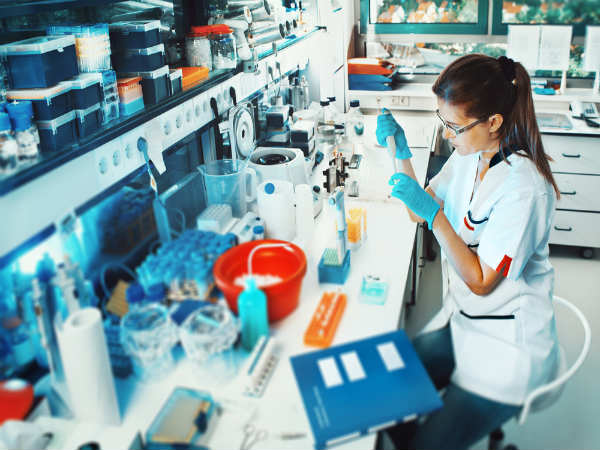
Microbiology is the study of microscopic organisms that are either single-celled (unicellular), cell colony (multicellular) or acellular (lacking cells). Microbiology includes many sub-disciplines like virology, mycology, parasitology and bacteriology.
Who is a microbiologist?
Microbiologists are people who specialise in the field of microbiolgy. They are scientists who study organisms and infectious agents that cannot be seen with the naked eye. They study the interactions of microorganisms with humans and other organisms that exist and affect our lives.
What is the scope of microbiology?
There is vast scope in the field of microbiology due to the advancement in the field of science and technology. The scope in this field is immense due to the involvement of microbiology in many fields like medicine, pharmacy, diary, industry, clinical research, water industry, agriculture, chemical technology and nanotechnology. The study of microbiology contributes greatly to the understanding of life through enhancements and intervention of microorganisms. There is an increase in demand for microbiologists in India and globally. A microbiologist can innovate new diagnostic kits, discover new drugs, teach, research, etc.
The study of microbiology contributes greatly to the understanding of life through enhancements and intervention of microorganisms. There is an increase in demand for microbiologists in India and globally. A microbiologist can innovate new diagnostic kits, discover new drugs, teach, research, etc.
Who can study microbiology?
Candidates who has a degree in biology or life sciences can take up microbiology as a career.
Job roles for a microbiologist based on qualification:
A undergraduate degree in microbiology gives you the opportunity to work at science laboratories and pathology labs.
If you have a PG in microbiology, you can work in microbiology based industries like pharmacy, dairy, breweries, distilleries, enzyme, etc. and you also can pursue PhD.
Students who complete PhD can take up teaching at universities and PG colleges. They can also take up a post-doctoral research.
General career opportunities for microbiologists:
Microbiologists can work in the area of food, pharmacy, agrochemistry biotechnology, biorefinery, environment, pollution control and bioremediation.
In the field of agriculture, microbiologists act as environmental and health specialists to study the role of microbes in plant disease, pest control, nutrition and soil fertility.
In the field of medicine and health care, the work is usually associated with diagnosis, prevention and treatment of illnesses associated with microbes.
Universities and colleges employ microbiologists as researchers and teachers.
What is the salary range for these professionals?
Reports suggest that the average salary of a microbiologist is $47,836 (approx.) per year. Though, anything between $31,551 - $71,221 (approx.) per year can be expected.
Top colleges offering this course in India
Delhi University
Panjab University
Top colleges offering this course abroad
Harvard University
Stanford University
Tufts University
University of California - Berkeley
University of Wisconsin - Madison
Image Source : http://www.careerindia.com/img/2014/08/08-microbioogy-lab.jpg
Post Your Comments for this Article
Related News
-
1.5 million jobs in rural India within one year
2017-06-16 11:45:48
-
Mumbai University offers new courses
2017-06-16 10:58:44
-
Mega Education Conclave In Srinagar
2017-05-22 09:53:23
-
Tamil Nadu SSLC Results 2017
2017-05-19 10:11:46



